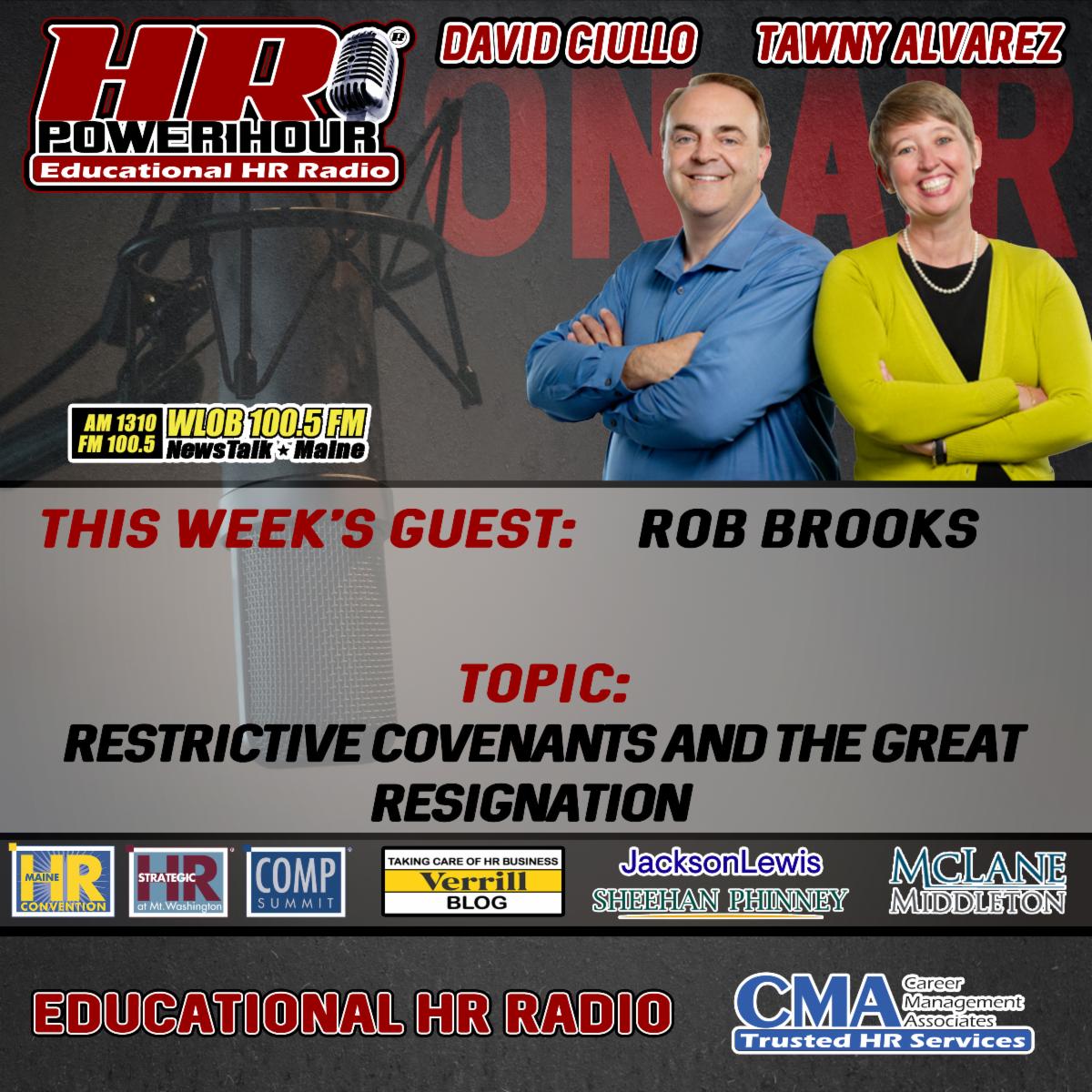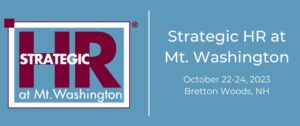Download the Show Audio Here
 Show Topic:
Show Topic:
Companies put significant time and energy into creating and maintaining confidential and proprietary information.
Similarly, companies are aware that investing in employee growth is necessary to maintain happy and healthy employees. What can employers do to protect these valuable assets during the “Great Resignation?
”In this episode of HR Power Hour, join co-host Tawny Alvarez as she speaks with Verrill Attorney Robert Brooks about steps that employers can take to protect confidential and proprietary information (as well as ever-important client relationships) from being lost to competitors during the Great Resignation using restrictive covenants.
During this episode they will discuss non-solicitation clauses, confidentiality provisions, and an employer’s ability to use a non-compete clause or agreement.
That’s on this week’s HR Power Hour
About The Guest:
Rob provides advice and representation to management on all aspects of the employment relationship. He works with clients engaged in construction, health care, manufacturing, transportation, utilities, and other industries throughout the country. Rob has successfully handled matters related to union organizing campaigns, collective bargaining, unfair labor practice charges, strikes, and arbitration.
Rob routinely handles claims for wrongful discharge, discrimination, unpaid wages, breach of non-compete and non-solicitation agreements, and other disputes before judges, juries, and administrative agencies, and has successfully represented clients at all levels of the state and federal court systems. Rob also regularly provides advice and assistance to clients on proper termination procedures, Family Medical Leave Act issues, labor relations, disability issues, stock option and employee benefits disputes, and other matters.
Rob has a particular focus on negotiating project labor agreements for large-scale construction projects. Rob has also advised public and private entities concerning the lawful use of project labor agreements in the context of a state’s competitive bidding laws.










